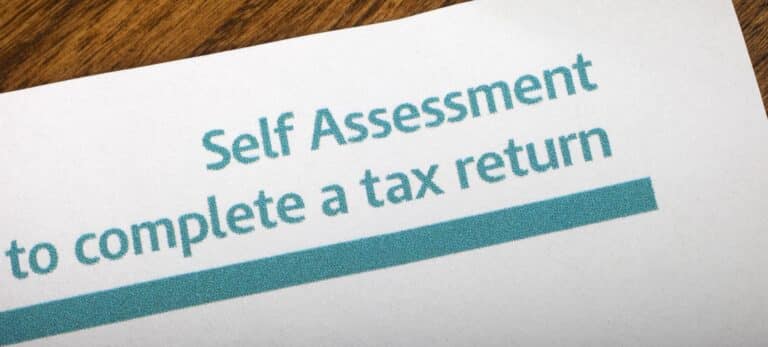The Key Benefits of being a Limited Company versus a Sole Trader
At Glow Accounts, we are often asked by new ‘start-up’ businesses: ‘Is it better to set up a limited company or sole trader?’.
Of course, there are advantages and disadvantages with each option. Anyone starting in business will need to decide what will work best for them. With our help, together, we can work through the merits of being a limited company or sole trader so that you understand the full scope of benefits and differences in terms of legal liability, taxes, and red tape.
Outlined below are some benefits to consider as a starting point.
The most popular way of trading in the UK is as a Sole Trader. Being a sole trader means that you run your own business as an individual and are essentially self-employed. Contrastingly, a limited liability company is a separate legal entity to you, with separate finances.
The Benefits of being a Sole Trader:
- Ease of Setup:
Establishing yourself as a sole trader is relatively straightforward and requires minimal legal formalities. You can start trading as soon as you register with HMRC as self-employed (using a straightforward online registration form, which Glow Accounts can help with.)
Timing is essential since there can be financial penalties if you fail to register before the end of the relevant tax year once you’ve started trading.
- Control:
As a sole trader, you have complete control over decision-making and the direction of your business. You can implement changes quickly without the need to consult with others, allowing for flexibility and adaptability.
- Simplicity of Administration:
Sole traders have less complex administrative obligations compared to limited companies. You are not required to maintain a separate business bank account (although it’s advisable), file detailed annual accounts, or hold formal shareholder meetings.
Sole trader profits must be calculated for each tax year (April 6 – April 5). Like a limited company, accounts must be prepared to determine the profits of the business, but unlike a limited company they don’t need to be audited or submitted to HMRC, unless specifically requested.
- Tax Benefits:
Sole traders often enjoy more tax flexibility. Profits are taxed as personal income, and you can claim a range of deductions for business-related expenses. This structure allows you to take advantage of personal tax allowances and potentially pay less tax, depending on your circumstances.
In addition to paying income tax on the business profits, sole traders, being self-employed, must also pay Class 2 NIC (£3.45 a week in the 2023/24 tax year if the Lower Profits Threshold of £12,570 per year is exceeded) and Class 4 NIC (9 per cent on profits of the business between £12,570 and £50,270 in the 2023/24 tax year, and 2 per cent on profits over £50,270).
You must also register for VAT if your taxable turnover is above the VAT registration threshold, which is £85,000 in 2023/24. This is all calculated and reported to HMRC via the annual self-assessment process and completion of self-assessment tax returns.
This all may sound like a minefield, but with guidance from an approachable accountant like Glow Accounts at hand, you can rest assured that obligations to HMRC are being fulfilled and you are maximising your tax benefits.
- Privacy:
As a sole trader, you have more privacy since your business’s financial information is not publicly disclosed.
Your personal and business finances are not separate entities, which can be advantageous if you prefer to keep your financial affairs private.

The Benefits of being a Limited Company:
- Limited Liability:
One significant advantage of forming a limited company is limited liability protection.
The company is a separate legal entity, distinct from its owners/shareholders. Therefore, your personal assets are generally protected from business debts and liabilities, reducing your personal financial risk.
This means if your business fails or is sued, you will only lose any investment in the business and won’t be personally liable for meeting charges such as litigation costs or damages from your own finances. Although, in some cases, lenders may require personal guarantees.
- Credibility & Perception:
Operating as a limited company can enhance your business’s credibility and professionalism. Some clients and partners may prefer to work with established limited companies due to the perceived stability and longevity associated with this business structure.
- Access to Funding:
Limited companies generally have more options for raising capital. They can issue shares to investors, apply for business loans, or seek venture capital funding. This structure may provide more opportunities to secure external financing for growth or investment purposes.
- Tax Advantages:
Limited companies often have access to additional tax planning opportunities. They may benefit from lower corporate tax rates, tax-deductible business expenses, and the ability to retain profits within the company, deferring personal income tax liabilities. Limited companies must pay corporation tax.
There are potential further taxes payable when extracting value from the business, including income tax and National Insurance Contributions (NIC), based on the salary you decide to pay yourself (which will be deductible against company profits) and taxes on any dividends (paid out of post-tax profits). You do, however, have control over the timing and method of extraction.
Limited companies can also offer a wider range of tax-free benefits to directors and employees and open up access to certain tax reliefs that aren’t available to sole traders, such as R&D tax reliefs. However, unlike a sole trader, money cannot be borrowed from the business’ bank account for personal use with impunity. Doing so in a limited company will be considered a ‘benefit in kind’ and carries other potential tax consequences.
- Growth & Expansion:
A limited company structure can facilitate expansion and growth strategies. It can be easier to bring in new shareholders, transfer ownership, or issue employee share options, which can incentivize key employees and support long-term business development.
It is possible to change from a sole trader to a limited company, and vice versa, but it is usually easier to start as a sole trader and incorporate, later rather, than the other way around.
Conclusion
In evaluating the advantages of both sole trader and limited company structures, it becomes evident that each offers unique benefits tailored to different business needs and objectives.
Advantages of a Sole Trader:
For sole traders, the simplicity of setup and administration, coupled with greater control over decision-making, present significant advantages. Additionally, sole traders often enjoy more tax flexibility and privacy compared to limited companies. However, they also bear full personal liability for business debts and obligations.
Advantages of a Limited Company:
On the other hand, limited companies offer distinct advantages such as limited liability protection, enhancing credibility and perception, and access to various funding options. Tax advantages, including lower corporate tax rates and access to tax planning opportunities, further contribute to the appeal of this structure. Moreover, the ability to facilitate growth and expansion through share issuance and employee incentives makes limited companies an attractive option for businesses aiming for long-term development.
In Summary
When deciding between the two setups, entrepreneurs must carefully weigh factors, such as risk tolerance, growth aspirations, and administrative preferences. While starting as a sole trader provides simplicity and immediacy, transitioning to a limited company may become favourable as the business evolves and expands.
Consulting with experienced professionals like Glow Accounts can provide invaluable guidance in navigating the complexities of each structure and making informed decisions aligned with the business’s goals and circumstances. Ultimately, the choice between sole trader and limited company hinges on finding the right balance between simplicity, liability protection, and growth potential for the individual business venture.
Glow Accounts work with many successful Limited Company’s and Sole Traders, some we have acquired as business grows and some from their initial startup. With all, we give guidance and the clarity to decision make and the right information to forecast and plan.
When considering a Limited Company versus Sole Trader and which will work best for you and your business, speak to us. Together we will ensure you have the right structure in place to suit your specific circumstances and goals which will put you on a strong footing for future success and growth.




